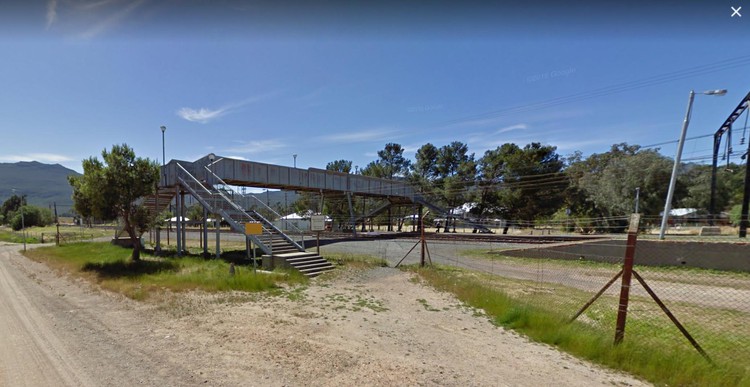Two years later Gouda’s train station remains closed and broken
PRASA’s broken supply chain system caused delay
In November, after being shut down for about two years, the Passenger Rail Agency of South Africa (PRASA) finally began to fix Gouda’s broken and closed Metrorail station.
The train station, an hour-and-a-half north of Cape Town, was forced to shut down in 2015 when the Railway Safety Regulator (RSR) issued a prohibition directive to PRASA. This came after PRASA failed to comply with an improvement directive issued by the RSR in 2013.
The improvement directive listed numerous safety and health hazards at the station including problems with the platforms, insufficient lighting, poor fencing and no toilet facilities. The safety regulator also discovered that the train lengths exceeded the platform length which meant that at least five carriages could not stop along the platform.
In an article published by IOL in 2015, Siphe Sithole, PRASA spokesperson at the time, said construction would begin in January 2016. But Moseli Ntsiki, the Regional Programme Head at PRASA Corporate Real Estate Solutions, told GroundUp that the tender process for a construction company took about a year and a half to finalise. The tender was only awarded to Nweti Construction in March 2017.
Ntsiki blamed the delay on the “staff turnover in the Supply Chain Management (SCM) space in the Western Cape Region”. This means that, between 2015 and 2017, employees left PRASA’s SCM department regularly and new employees had to familiarise themselves with the project each time.
PRASA’s SCM department is at the centre of the PRASAleaks, a set of reports commissioned by Treasury in which 185 out of 193 contracts worth R10 million or more were found to be irregular.
Catherine Jacobs, a resident of Gouda who used the train before it was shut down, said there was no communication from PRASA about when the station was expected to reopen and why it had been delayed.
Jacobs said the alternative transport PRASA arranged has been unreliable. “Buses arrive late, buses go on strike and [there is] possibly no transport when PRASA doesn’t pay the contractor on time. It has happened before”, said Jacobs.
Jacobs said she knows Metrorail train service is also unreliable, but having the trains back would relieve commuters’ stress about whether they will have transport to and from work on any given day.
Despite the years-long delay upgrading the station, Ntsiki said PRASA is aiming for the project to be completed in March 2018. It will include “platform and station amenities (ablution facilities, ticket office, passenger shelters, etc.) and lighting”.
Support independent journalism
Donate using Payfast

Don't miss out on the latest news
We respect your privacy, and promise we won't spam you.
Next: Paramedic: “We are scared of the community we work for”
Previous: Commuters fear losing their jobs after train service suspended
© 2017 GroundUp. 
This article is licensed under a Creative Commons Attribution-NoDerivatives 4.0 International License.
You may republish this article, so long as you credit the authors and GroundUp, and do not change the text. Please include a link back to the original article.

